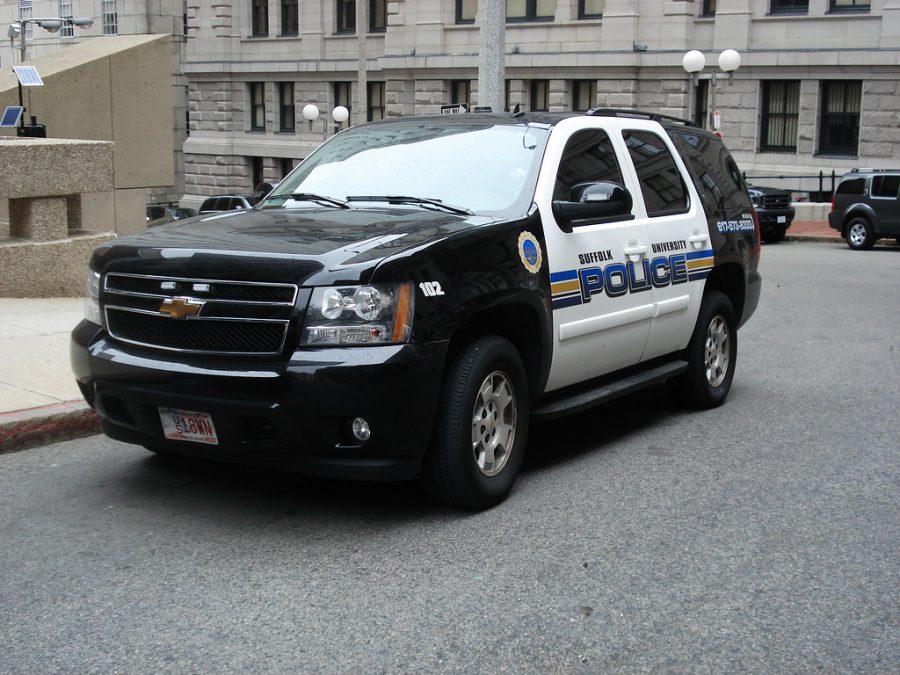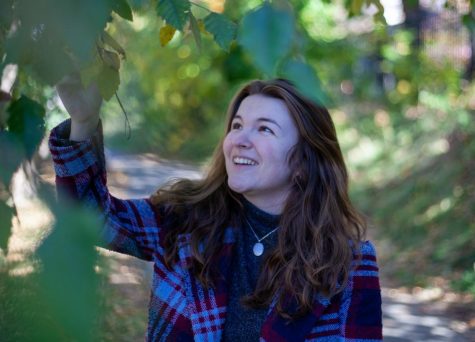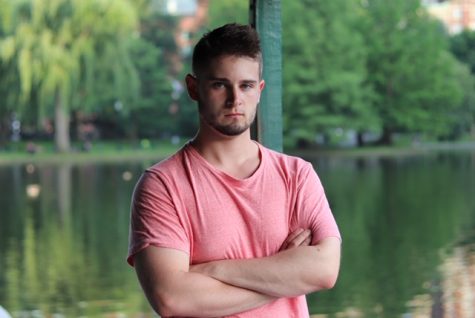Nearly 80% of College of Arts and Sciences (CAS) faculty members said they are not in favor of arming sworn officers in the Suffolk University Police Department (SUPD), according to Amy Marks, a CAS representative on the Faculty Senate.
In an email to The Suffolk Journal last week, Marks said the arming issue was put to a blind vote in an October CAS faculty meeting. Faculty could vote in favor or against arming SUPD, or could abstain.
The remaining 20% of the votes were split equally between in favor of arming and abstaining. Marks said 169 CAS faculty members participated in the vote. According to CAS Assistant Dean Melissa Gately, there are about 200 full-time CAS faculty members.
“Faculty expressed a strong sense of concern about harming the Suffolk community’s inclusivity and deep concern for the well-being and safety of students and community members of color,” said Marks. “Faculty also expressed a strong theme of reservations around the cost of arming and whether funds should first be used for other safety measures/security.”
The Faculty Senate that Marks is a representative on consists of 12 senators; four from the CAS, four from the Sawyer Business School (SBS) and four from the Suffolk Law School.
Although the CAS decided to conduct a vote on the issue, the Faculty Senate in its entirety has not decided yet if they will make a recommendation, according to Professor of Law Steven Ferrey, who currently serves as the chair of the Faculty Senate.
“It’s an important issue and it’s one that, for a lot of people, seems like a big step,” said Ferrey. “We’re still thinking about it and aware of it, but it’s our job to represent faculty views and if there’s not a clear consensus, we may just end up not being able to make a recommendation one way or the other.”
Faculty Governance Council Chair Carlos Rufin said there were mixed views shared by SBS faculty at an SBS faculty assembly meeting Thursday, as well as a slightly greater number of those in favor. However, he said there is still no clear consensus on the issue.
“There appears to be nothing that even resembles a consensus among SBS faculty, and since we have not been asked by the University to provide an overall view of the SBS faculty, we will not be taking a vote,” said Rufin. “Instead, we will simply relay the views we have collected back to the University Senate for their consideration.”
Erika Gebo, chair of the sociology department, created a report on arming SUPD. She is not in favor of arming at this point because she feels more information is needed before Suffolk’s Board of Trustees officially votes on the issue.
She said she thought several questions need to be answered before the Board votes to arm or not. These include how the university will pay for the arming process, if other security measures have been explored — including I.D. only access to buildings on campus — and if all members of the Suffolk community have been involved in the discussion of arming.
“I don’t think we can make a fully informed decision until we answer [these questions],” said Gebo.
Gebo said she wants to see an official recommendation to arm SUPD from Boston Police Department. She also wants to ensure that the Board considers the opinions of international students and students of color.
“You have to question if it’s really aligned with the university’s goals of inclusivity and equity when were trying to attract people of disadvantaged communities, and when there have been numerous instances of armed police in the United States [not acting with inclusivity and equity in mind],” said Gebo.
Gebo wrote in her report that most crimes or violations on campus are sexual assault and liquor law violations, and she thinks that “arming police will likely be ineffective in these in preventing these incidents.”
While CAS may have voted in favor of not arming, faculty members across campus are still divided on the issue.
“It’s hard to effectively sample this and often times I think we feel it’s better [as a] discussion so people aren’t just checking a box yes or no,” said Ferrey.





















